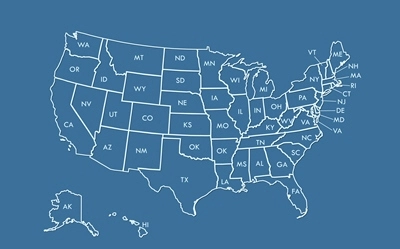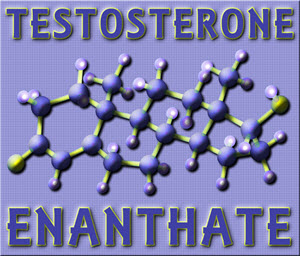Companies that want their managers to perform at peak levels should offer more stress-busting perks like yoga, Chi Kung, Tai Chi, and meditation classes,  modern, well-stocked gymnasiums, and extended vacation policies.
modern, well-stocked gymnasiums, and extended vacation policies.
Besides, they should consider changing their corporate culture to both reward and take the pressure off the managers who show the most potential.
That’s the conclusion of a new study published in the Journal of Personality and Social Psychology.
Video Link: https://vimeo.com/291342502
Video Download: Click Here To Download Video
Video Stream: Click Here To Stream Video
The study follows other provocative research on leaders’ hormone levels and leadership and empathy.
In this recent study, researchers evaluated the hormone levels of male executives in an executive education program at Harvard University.
They discovered that managers who had greater leadership responsibility had higher levels of the hormone testosterone, which stimulates the development of male sex organs and has been shown in numerous studies to be associated with leadership qualities like aggressiveness and risk-taking.
The study looked only at men because women’s testosterone levels tend not to fluctuate much.
Additionally, the dominant managers also had low levels of the stress hormone cortisol.
Study subjects who had both high levels of testosterone and high levels of cortisol had fewer subordinates, and thus less leadership responsibility.
 The study’s conclusion: stress can suppress the leadership qualities associated with elevated levels of testosterone.
The study’s conclusion: stress can suppress the leadership qualities associated with elevated levels of testosterone.
“Stress reduction has leadership implications,” says Gary Sherman, lead researcher on the study.
“It can unleash leadership potential in employees who might otherwise not show it.”
Before Sherman’s study, the effects on leaders of testosterone and cortisol had only been tested in a laboratory setting, and just among graduate student subjects who had no real-life experience.
In a five-year-old study, researchers conducted two lab studies on grad students.
In one, half the students acted as leaders, instructing the others in building structures out of blocks.
In the second study, researchers told students they were competing to solve a series of puzzles, and they asked the students to choose whether to continue the competition or to fill out a questionnaire about their favorite kinds of food and entertainment.
The researchers surmised that students who supervised the block building and who decided to continue the puzzle competition were performing like leaders.
As in Sherman’s study, those students had higher levels of testosterone and lower levels of cortisol than others in the study. 
The results of the graduate student study appeared dominant, says Sherman, but the subjects were students, not executives.
Before performing the hormone study, Sherman and another team of researchers tested a different theory.
The researchers looked at something they called “empathic accuracy,” the ability to detect others’ emotional states.
They wanted to know whether leaders had a greater or lesser ability to empathize.
It turned out that the more responsibility a leader had, the less accurate he or she was in identifying the emotional states of others.
The paper also examined whether study subjects were accepting of inequalities in status and power.
The leaders with more responsibility were most comfortable with the idea that some groups were superior to others.
“The results of the study were a little disheartening,” says Sherman.
“But it did follow from what we know of something called social dominance orientation.”
In other words, strong leaders show little empathy and accept the notion that social inequality is both natural and morally acceptable.
Sherman was asked whether he thought his work suggested that someone like Donald Trump, Barack Obama, or Goldman Sachs CEO Lloyd Blankfein, all men  who have many people reporting to them, had low levels of cortisol, a high degree of testosterone, a small degree of empathy and acceptance of inequality.
who have many people reporting to them, had low levels of cortisol, a high degree of testosterone, a small degree of empathy and acceptance of inequality.
However, Sherman rightly refused to hypothesize outside of the group he studied.
The 78 leaders in his testosterone study mostly came from under-the-radar public sector jobs like the military, law enforcement, and government agencies, plus some industry executives who serviced public companies.
“It'd be good to make that extension, but it’s going a little beyond our sample,” he says. “Most of the people we studied are not in the public sphere.”
But the latest research is crystal clear about one thing: Stress inhibits the benefits of testosterone.
While many causes of stress, like a crumbling stock market, the death of a loved one, or a natural disaster, are beyond our control, we can work on ways to manage stress, E.g., exercise, meditation, and taking time off from work.
Our employers can assist us by offering generous leave and vacation policies and stress-reduction programs.
Sherman’s study is similar to the ongoing controversy over the New York Times story that described a high-stress work culture at Amazon.
Is the company squandering an opportunity to cultivate strong leaders?
“Our study is about leadership potential that’s been untapped, that may otherwise be blocked by cortisol,” says Sherman.
“It’s possible to unlock that potential.”
Contact Us Today For A Free Consultation

- Common Chemicals Found in Plastic May Lower Testosterone Levels [Last Updated On: January 18th, 2024] [Originally Added On: September 29th, 2020]
- There is No “Testosterone Controversy” [Last Updated On: June 30th, 2024] [Originally Added On: September 30th, 2020]
- Recent Study Confirms: Testosterone DOES NOT Increase Heart Attack Risk! [Last Updated On: February 10th, 2024] [Originally Added On: October 5th, 2020]
- What You Need to Know About Testosterone Esters [Last Updated On: March 20th, 2024] [Originally Added On: October 7th, 2020]
- Research Makes a Case for Testosterone Replacement Therapy (TRT) [Last Updated On: December 21st, 2023] [Originally Added On: October 8th, 2020]
- Testosterone: How Much Do You Really Know About This Potent Hormone? [Last Updated On: July 16th, 2024] [Originally Added On: October 9th, 2020]
- Possible Health Benefits of Testosterone HRT (TRT) [Last Updated On: December 25th, 2023] [Originally Added On: November 20th, 2020]
- Testosterone Facts to Consider When Deciding on Testosterone Replacement Therapy [Last Updated On: April 6th, 2024] [Originally Added On: November 21st, 2020]
- Diabetic Men with Low Testosterone Run Higher Risk of Developing Atherosclerosis [Last Updated On: February 9th, 2024] [Originally Added On: November 22nd, 2020]
- Things You Might Not Have Known About Testosterone [Last Updated On: January 26th, 2024] [Originally Added On: November 23rd, 2020]
- Testosterone Propionate [Last Updated On: February 14th, 2022] [Originally Added On: January 17th, 2022]
Word Count: 813





















